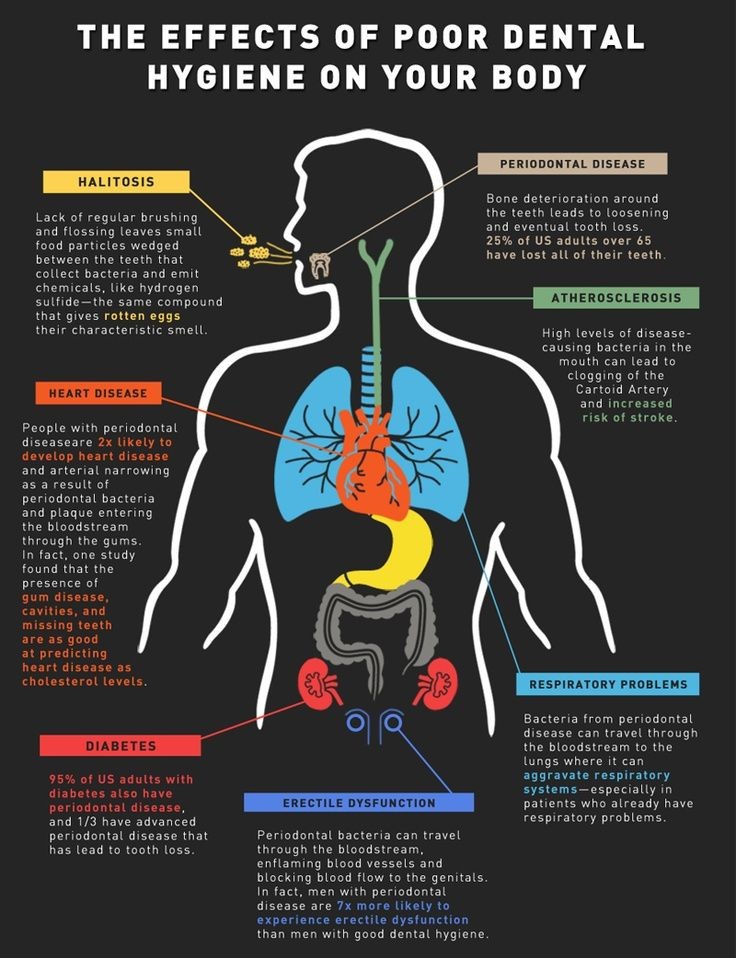Regular checkups with your dentist can do more than keep your teeth healthy – it can keep your body healthy too. There’s a strong correlation between one’s oral health and overall health. The hygiene of your mouth can greatly affect the rest of your body.

Bacteria that accumulates on teeth may make the gums susceptible to infection. In defense, your immune system attacks the infection leading to the gums being inflamed. The inflammation continues until the infection is stabilized. If left untreated, it can erode gums and teeth resulting in gum disease (known as periodontitis) and problems with other body parts.
Gum Disease and Health Issues
Research from the Academy of General Dentistry shows a link between gum disease and other health problems, such as diabetes, digestive problems, and heart disease. Women with gum disease are also more likely to give birth to premature or low weight babies.
Other studies reveal that most systemic diseases – diseases affecting the whole body – involve oral complications, such as mouth ulcers, swollen gums, and dry mouth. Systemic diseases include diabetes, heart disease, kidney disease, leukemia, and oral cancer.
Gum Disease and Diabetes
The gum disease/diabetes relationship may be the strongest one of all. Inflammation originating from the mouth may negatively affect the body’s ability to manage sugar levels. People with diabetes have problems controlling blood sugar levels since their body cells don’t break down sugar the way healthy body cells do. This results in extremely high blood sugar and insulin levels. To make matters more complicated, gum disease and diabetes appear to have a two-way relationship. High blood sugar levels can also promote infections to grow, such as gum infections.
Gum Disease and Heart Disease
Researchers at the American Academy of Periodontology found that people with gum disease are two times more likely to suffer from coronary artery disease than those without it. The two diseases have a number of common risk factors, such as being overweight, unhealthy eating habits, and smoking.
If you suffer from gum disease, oral bacteria can make its way to your bloodstream and lead to infection in your heart and lungs. The bacteria can also stick to the insides leading to blockages and blood clots to form. All these factors greatly increase one’s risk of having heart complications, such as heart disease, heart attacks, and strokes.
Establishing Good Hygiene Habits
You can minimize potential health complications by:
- Brushing your teeth for 2-3 minutes after every meal with fluoride toothpaste.
- Flossing daily to remove plaque and using mouth wash to get rid of bacteria.
- Eating plenty of healthy foods, such as fruits and vegetables, to get your nutrients.
- Avoiding cigarettes and alcohol, which increase one’s risk of developing gum disease and oral cancer.
- Visiting your dentist annually for cleanings and to check for cavities and gum problems.
Following these steps can not only protect your teeth, it can also save your life!

